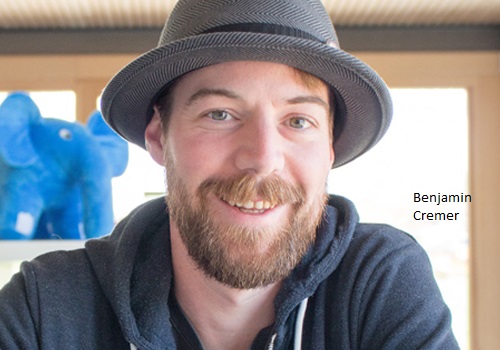Benjamin Cremer: A Bold Voice for Reform in Modern Faith

Benjamin Cremer: A Voice of Faith, Reform, and Courage in Modern Christianity
In the ever-evolving landscape of modern faith, few names have sparked as much reflection and dialogue as Benjamin Cremer. A theologian, pastor, and social commentator, Benjamin Cremer has become a well-recognized figure for his progressive Christian views and bold stance on social justice issues. His presence, especially on social media platforms like X (formerly Twitter), has given a voice to many believers who find themselves disillusioned with traditional church practices but still deeply rooted in faith.
This article delves into the life, beliefs, and influence of Benjamin Cremer, exploring his contributions to theology and public discourse while analyzing the impact of his message on Christian communities around the world.
Who is Benjamin Cremer?
Benjamin Cremer is a pastor and theologian known for his thought-provoking and reform-minded approach to Christianity. Based in the United States, he has gained prominence not only within his local community but also internationally, particularly through his insightful social media commentary. Unlike many religious leaders who shy away from controversy, Benjamin Cremer addresses difficult and often divisive topics head-on—ranging from systemic racism and Christian nationalism to LGBTQ+ inclusion and biblical interpretation.
What sets Benjamin Cremer apart is his ability to communicate complex theological ideas in an accessible and compassionate way. His mission is clear: to call the church back to the radical love and justice exemplified by Jesus Christ.
Theological Stance and Core Beliefs
Benjamin Cremer is firmly rooted in Christian theology but advocates for a reexamination of long-held beliefs and church structures. One of his key messages is the necessity of distinguishing between the teachings of Jesus and the often flawed institutions that claim to represent Him. According to Cremer, the institutional church has at times become more focused on political power and preserving tradition than on reflecting the Gospel’s message of love and mercy.
He encourages believers to:
-
Question unhealthy theological systems
-
Recognize the church’s historical complicity in injustice
-
Embrace inclusive, grace-filled faith practices
For Benjamin Cremer, the Gospel is inherently political—but not in the partisan sense. Instead, it challenges systemic oppression and calls for compassion, equity, and transformation at every level of society.
Influence Through Social Media
Benjamin Cremer’s influence extends far beyond the pulpit. His social media presence has become a sanctuary for believers who feel alienated by mainstream church culture. His X (Twitter) threads regularly go viral, striking a chord with thousands who appreciate his honesty, vulnerability, and commitment to truth.
Through concise and impactful posts, Benjamin Cremer critiques harmful theology, shares historical Christian insights, and offers hope to those deconstructing their faith. For many, his voice acts as a bridge between the faith they grew up with and the spiritual path they now seek.
Controversies and Criticisms
Like many prophetic voices, Benjamin Cremer is not without his critics. His challenges to traditional interpretations of scripture, particularly around gender, race, and sexuality, have drawn ire from conservative Christian groups. Some label him as divisive or accuse him of watering down the Gospel.
However, Cremer remains undeterred. He views critique as part of the prophetic journey—standing with those who have historically been pushed to the margins by religious systems. For him, faith is not about comfort but about courage.
Legacy and Future Outlook
Though still early in what promises to be a long and impactful career, Benjamin Cremer is already shaping the future of faith-based discourse. He is not merely a commentator but a pastor committed to healing, rebuilding, and reimagining what it means to follow Jesus today.
In the coming years, we can expect Cremer to continue challenging the status quo, equipping believers for thoughtful, courageous, and compassionate faith. His work represents a beacon for those navigating doubt, deconstruction, and renewal in their spiritual lives.
Frequently Asked Questions (FAQs)
Q1: Is Benjamin Cremer affiliated with a particular denomination?
A: Benjamin Cremer is associated with the Wesleyan-Holiness tradition but speaks broadly across denominational lines. His teachings focus more on the heart of the Gospel than on denominational identity.
Q2: Where can I read Benjamin Cremer’s work?
A: He shares most of his writings on social media platforms like X (Twitter) and sometimes contributes to online theological publications and podcasts.
Q3: Why do people follow Benjamin Cremer?
A: People appreciate his compassionate, courageous stance on difficult issues. He speaks to those who feel spiritually displaced but still seek faith.
Q4: Does Benjamin Cremer lead a church?
A: Yes, he has served as a pastor in various church settings and remains actively engaged in local ministry alongside his broader digital platform.
Q5: How does Benjamin handle criticism?
A: With grace and clarity. He believes honest dialogue, even when difficult, is essential to spiritual growth and healing.
Q6: Is Benjamin Cremer part of the deconstruction movement?
A: While he supports those in the deconstruction process, he focuses more on reconstruction—helping people rebuild a healthy, authentic relationship with Jesus.
Read also: Lucy Bolam’s Quiet Legacy: A Life of Integrity and Strength



